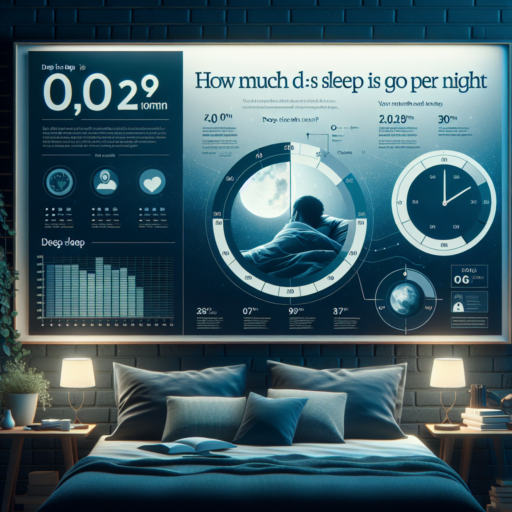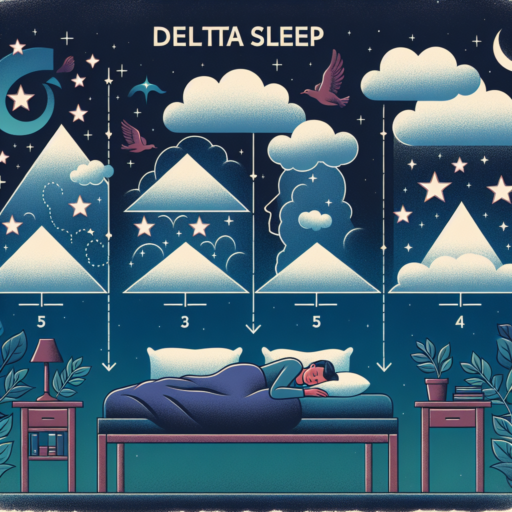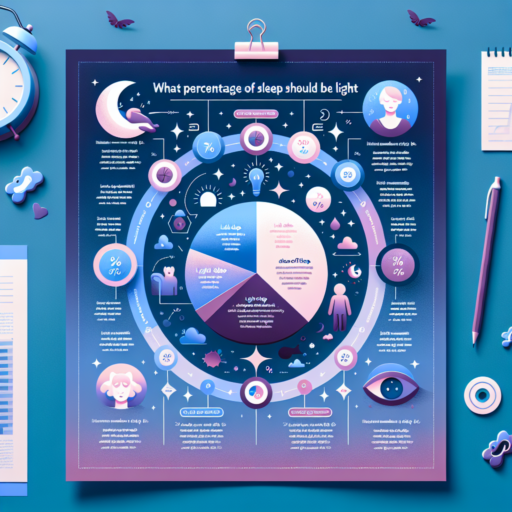How much deep sleep per night is healthy?
Understanding the amount of deep sleep you need each night is crucial for maintaining optimal health and well-being. Deep sleep, also known as slow-wave sleep, plays an integral role in physical recovery, memory consolidation, and ensuring your immune system functions properly. But how much of it do we actually need to reap these benefits?
Experts in sleep research highlight that, while sleep needs can vary from one individual to another, a healthy adult typically requires between 7 to 9 hours of total sleep per night. Within this timeframe, approximately 20-25% should be deep sleep. In practical terms, this equates to about 90 to 120 minutes of deep sleep per night for optimal health and function. However, achieving this specific amount can be influenced by factors such as age, lifestyle, and overall health.
To ensure you are getting enough deep sleep, it’s important to stick to a consistent sleep schedule, limit exposure to screens before bedtime, and create a restful sleeping environment. These practices can help set the stage for a night of restorative sleep, encompassing the vital deep sleep your body and mind require.
No se han encontrado productos.
Is 40 minutes of deep sleep a night enough?
Understanding the role of deep sleep in our overall sleep cycle is crucial when assessing whether 40 minutes per night suffices. Deep sleep, or slow-wave sleep, is the most restorative sleep stage, facilitating memory consolidation, physical recovery, and hormonal regulation. Experts suggest that adults need 1-2 hours of deep sleep per night as part of the 7-9 hours recommended for total sleep. Therefore, aiming for more than 40 minutes of deep sleep could be beneficial for optimal health and well-being.
During deep sleep, the body undergoes significant recovery processes. This stage helps in repairing muscles, tissues, stimulating growth and development, regulating hormones like cortisol and insulin, and strengthening the immune system. A shortfall in deep sleep, therefore, might not only affect physical health but can also have implications on mental health, mood regulation, and cognitive functions. It’s worth noting that while 40 minutes of deep sleep may seem adequate for some, the quality of the overall sleep cycle needs consideration.
The question of sufficiency also varies from person to person, with factors such as age, lifestyle, and health conditions playing a crucial role. For instance, athletes or individuals with high physical demands may require more deep sleep for muscle recovery. Meanwhile, older adults might find their deep sleep duration naturally shortening with age, making every minute count. Tailoring your sleep habits and environment to promote more deep sleep can be a step toward achieving the right balance for your needs.
How do I get more deep sleep?
Improving the quality of your deep sleep is essential for your body’s recovery and overall health. There are several strategies you can employ to enhance the depth and quality of your sleep. Firstly, maintaining a consistent sleep schedule can significantly impact your sleep quality. Going to bed and waking up at the same time every day helps regulate your body’s internal clock, making it easier to fall into deep sleep more quickly.
Creating a bedtime routine is another effective method to get more deep sleep. Engaging in relaxing activities such as reading a book, taking a warm bath, or practicing meditation can signal to your body that it’s time to wind down. This preparation can make the transition into deep sleep smoother and quicker. Additionally, limiting exposure to screens and bright lights in the hour leading up to bedtime can greatly improve your ability to fall into deep sleep, as light exposure can disrupt your body’s melatonin production, a hormone critical for sleep.
Lastly, paying attention to your sleeping environment can play a crucial role in enhancing deep sleep. Ensure your bedroom is conducive to sleep—cool, dark, and quiet are optimal conditions. Using blackout curtains, earplugs, or white noise machines can help create an environment that supports uninterrupted deep sleep. Also, investing in a comfortable mattress and pillows can significantly improve sleep quality, allowing your body to relax fully and enter deeper stages of sleep more easily.
Why is my deep sleep so low?
Understanding the root causes behind low deep sleep can help unravel the often complex interplay between lifestyle choices and sleep quality. Deep sleep, also known as slow-wave sleep, is crucial for physical rejuvenation, memory consolidation, and various aspects of health and well-being. When its quantity diminishes, the consequences can span from simple fatigue to more chronic health issues.
Several factors can contribute to a reduction in deep sleep. These include stress, age, lifestyle habits, and environmental conditions. High stress levels, for instance, can significantly impact your body’s ability to enter deep sleep phases, as the mind continues to be active, preventing the relaxation needed for deep sleep. Similarly, as we age, the natural architecture of our sleep changes, often resulting in decreased deep sleep.
Lifestyle habits such as irregular sleep schedules, excessive exposure to blue light before bedtime, and the consumption of stimulants like caffeine late in the day can also sabotage deep sleep. These habits can disrupt the body’s internal clock, making it harder to transition into and maintain deep sleep stages. Additionally, an uncomfortable sleep environment, whether it’s due to noise, light, or temperature, can further impair sleep quality.
Finally, underlying health issues such as sleep apnea, restless legs syndrome, or chronic pain can severely impact sleep architecture, including the amount of deep sleep. It is important to consult with a healthcare provider if you suspect any of these conditions might be contributing to your sleep problems. Making targeted changes to address these factors can significantly improve the quality and quantity of your deep sleep, enhancing overall health and well-being.




